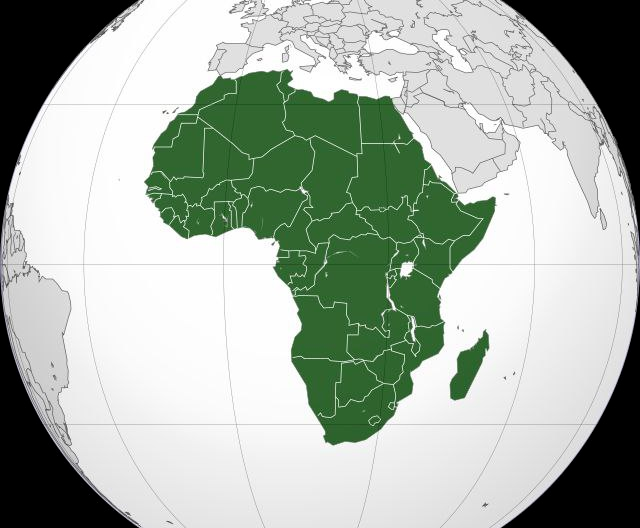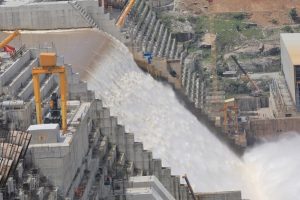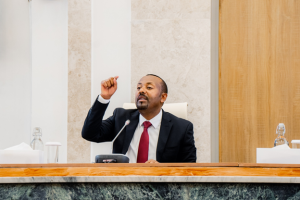
Africa faces numerous challenges that significantly hinder its sustainable development, including terrorism, military coups, internal conflicts, and the severe impacts of climate change. These issues not only disrupt daily life but also threaten economic stability across the continent. To overcome these challenges, the African Union (AU) must strengthen its cooperation with regional organizations, which are crucial in tackling these urgent issues.
Terrorism continues to be a serious threat in many parts of Africa, destabilizing regions and disrupting daily life. It fosters an atmosphere of fear and insecurity, impeding economic growth and political stability. Alongside terrorism, military takeovers that result in political instability further exacerbate the continent’s development struggles. These coups often lead to the degradation of civil rights, uprooting communities, and diverting funds away from important development projects. As a result, the continent becomes trapped in a cycle of instability, making it difficult to achieve meaningful and sustained development.
Additionally, climate change is a major factor that amplifies existing vulnerabilities across Africa. It leads to water scarcity, food insecurity, and extreme weather events, all of which threaten livelihoods and agricultural productivity. Many African countries are heavily reliant on agriculture for their economies, and with declining crop yields, many people are becoming even more impoverished. These issues, interconnected with political and security challenges, create a complex web that severely hampers Africa’s efforts to achieve sustainable development.
In response to these challenges, the African Union was established more than 60 years ago with the mission of promoting cooperation between African nations, focusing on governance, peace, and sustainable development. The AU aims to build a more prosperous, integrated, and peaceful Africa by enabling member countries to address common issues collaboratively. Despite the progress that the AU has made in some areas, it is clear that the continent’s challenges require more than just the efforts of the Union; it requires stronger regional cooperation.
Regional organizations like the Intergovernmental Authority on Development (IGAD), the Southern African Development Community (SADC), and the Economic Community of West African States (ECOWAS) have become critical in addressing local issues and promoting regional integration. Their localized approaches are essential for effectively tackling specific challenges faced by countries within their regions. Through collaboration with the AU, these regional organizations have helped improve infrastructure, trade relations, and have coordinated responses to health crises. Such regional partnerships are key to Africa’s path toward sustainable development.
However, despite the importance of these regional organizations, critics have pointed out that there is often a lack of harmony between the AU and its regional counterparts. Several challenges hamper their collaborative efforts, including overlapping mandates, bureaucratic inefficiencies, and poor communication. These problems undermine the effectiveness of regional initiatives, preventing the AU and its partners from making the desired impact.
Dawit Mezgebe, a PhD candidate in African and Asian Studies at Addis Ababa University, has highlighted concerns regarding the effectiveness of regional institutions operating under the AU. He observed that, while regional organizations are meant to follow AU guidelines, there are instances where their actions appear inadequate or unjust. For example, Dawit noted that regional bodies often intervene in conflicts concerning peace, politics, and economics within their designated areas. However, these interventions sometimes lack coordination and fail to yield long-term solutions. This can be seen in the difficulty some regional organizations face in resolving conflicts effectively or preventing political instability in certain member states.
Worku Yakob (PhD), General Director of African Change for International and Think Tank and an African and Foreign Affairs Policy Researcher, also argued that regional organizations tasked with implementing AU policies often fall short due to weak leadership frameworks within the AU itself. Worku emphasized that financial constraints and the inability of the AU to address urgent peace and security issues hinder the ability of regional bodies to function effectively. This lack of self-reliance has led to a situation where regional organizations are often reliant on external funding and support, which undermines their ability to take decisive action.
The involvement of external powers also complicates the situation. For instance, Egypt’s meddling in the IGAD-led peace process in Somalia has been widely criticized. Dawit argued that such interference undermines the integrity of regional initiatives and impedes effective governance. The lack of decisive action by the AU in preventing external nations from interfering in regional affairs further complicates the situation. The failure of the AU to take a firm stand on issues like this raises questions about the authority and effectiveness of regional institutions in maintaining peace and stability.
Another challenge identified by Worku is the conflict of interest arising from the leadership structure of the AU and regional organizations. Leaders from member states often hold positions within regional institutions, creating a situation where personal and national interests may take precedence over the collective good. This duality of leadership contributes to the inefficiency of the AU’s operations and undermines the ability of the Union to fulfill its mandate effectively.
Worku further criticized the AU’s leadership approach, arguing that it lacks ideological direction and expertise. This deficiency, he claimed, has hindered Africa’s ability to assert itself as a major player on the global stage. Rather than forging a path towards self-reliance and regional integration, the continent has become increasingly dependent on Western countries for guidance and support. This dependency is seen as unacceptable by critics like Worku, who argue that it limits Africa’s sovereignty and potential.
Dawit also pointed to the ongoing instability in the continent, particularly the frequency of military coups, as a direct result of the weaknesses in regional organizations. The AU’s inability to enforce discipline among its member states and prevent coups has contributed to the destabilization of many African countries. This failure to maintain peace and security weakens the Union and prevents it from being an effective force for good in the region.
Worku called for a transformative vision for the African Union. He urged the AU to strengthen its internal structures and provide more robust support to regional organizations. By doing so, the AU could operate more effectively as an umbrella organization, enabling regional counterparts to collaborate more seamlessly and achieve their common goals. He emphasized that the AU must provide better leadership, improved coordination, and sustainable funding to regional institutions to allow them to function effectively.
The need for reform within regional institutions has become more urgent as Africa grapples with multiple crises. Strengthening these organizations could enhance their capacity to address conflicts, foster regional integration, and drive sustainable development across the continent. Without significant reforms, the prospects for peace and stability remain bleak. Effective governance is crucial to shaping Africa’s future, and the AU must lead the charge in ensuring that its regional partners can function as effective contributors to the continent’s progress.
Experts also argue that the AU must adopt a more integrated approach to governance, one that fosters collaboration between regional organizations and enhances their ability to address the diverse challenges facing Africa. This approach should involve a comprehensive overhaul of the AU’s decision-making processes to ensure that all member states, particularly smaller nations, have a voice. A more inclusive process would help ensure that the AU’s decisions reflect the collective interests of all African nations, rather than the interests of a few.
To sum up, the African Union must strengthen its partnership with regional organizations to address the challenges facing the continent effectively. This means reforming the leadership dynamics within the AU, fostering greater collaboration, and ensuring that regional organizations are adequately supported. Only through a unified and coordinated effort can Africa overcome the obstacles standing in the way of its development and achieve a more stable and prosperous future. The urgency of these reforms cannot be overstated, as Africa’s future depends on the ability of its institutions to adapt and respond to the complex issues of our time.
BY FIKADU BELAY
THE ETHIOPIAN HERALD THURSDAY 27 MARCH 2025



